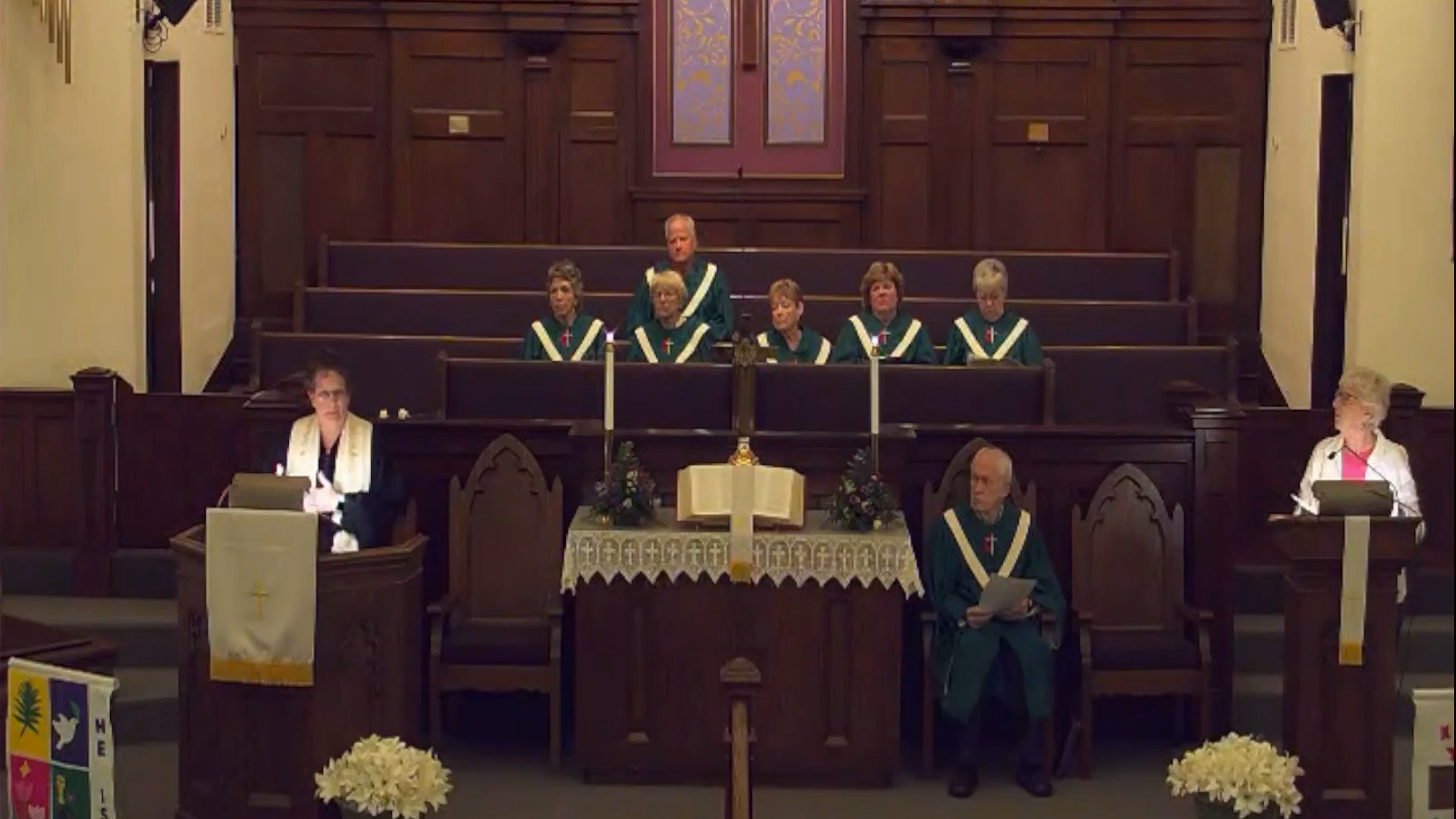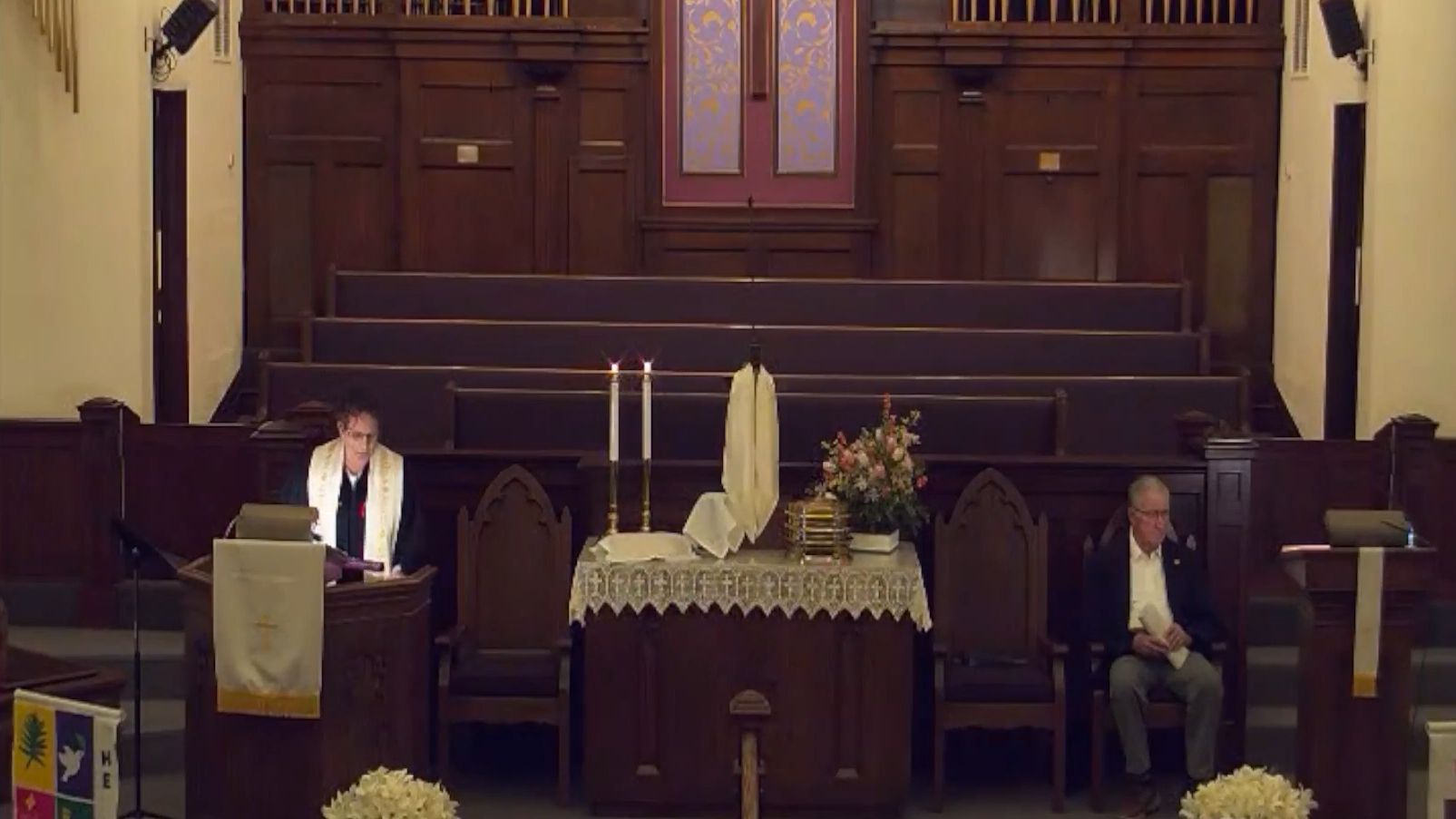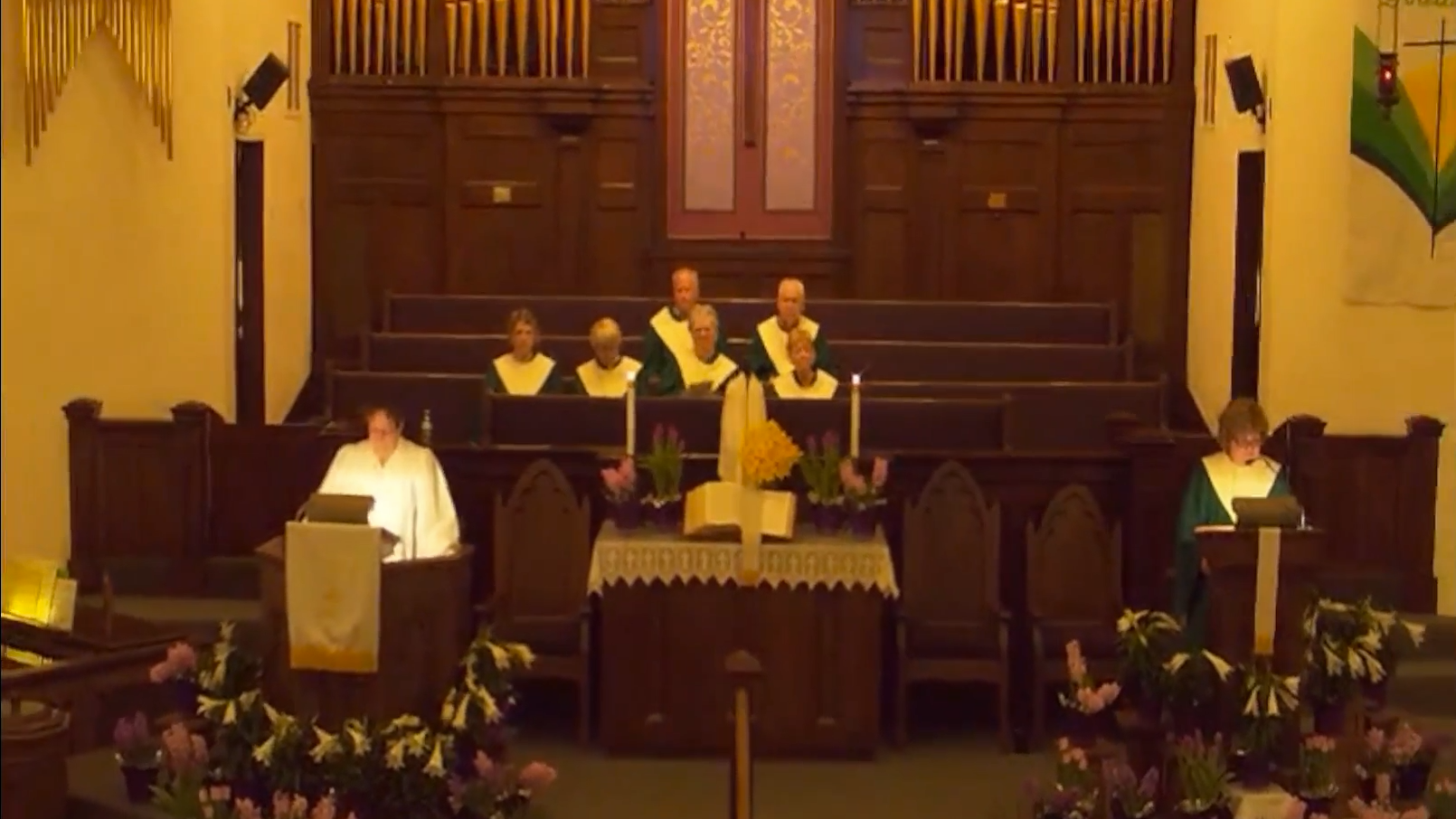
Through the life, death, and resurrection of Jesus, God has claimed us. We belong to God, and no one can change that. However, discipleship is not an easy journey. The teachings of Jesus indicate that following him can be challenging.

Christ calls us into a life of discipleship. From his first appearance to Mary in the garden to his last before his ascension, when the risen Christ appears, he commissions his disciples either to go and tell or to follow. The vocation and mission of the church is to respond to this commission.

Gardens and hope share a beautiful similarity—they're both acts of belief in the future. When you plant a seed, you're trusting it will grow into something vibrant and full of life. Even though you can't see the results immediately, you nurture the soil, water the plants, and tend to them with patience, knowing that growth takes time.
Browse all of the Sermons and Messages
Through the life, death, and resurrection of Jesus, God has claimed us. We belong to God, and no one can change that. However, discipleship is not an easy journey. The teachings of Jesus indicate that following him can be challenging.
Christ calls us into a life of discipleship. From his first appearance to Mary in the garden to his last before his ascension, when the risen Christ appears, he commissions his disciples either to go and tell or to follow. The vocation and mission of the church is to respond to this commission.
Gardens and hope share a beautiful similarity—they're both acts of belief in the future. When you plant a seed, you're trusting it will grow into something vibrant and full of life. Even though you can't see the results immediately, you nurture the soil, water the plants, and tend to them with patience, knowing that growth takes time.
We began the service today with an energetic procession, waving palm fronds, singing and shouting “Hosanna!” There was a lot of excitement in the liturgy and the music. It’s easy to get caught up in the excitement, and it’s fun. It gets our attention and reminds us that something important is about to happen.
As Judas becomes increasingly frustrated by Jesus’ inability, or unwillingness, to do what he wants him to do, he begins his plan to betray him – he walks away from everything Jesus has taught him and places his trust instead in the Jewish Law and established government.
This is where Psalm 23 comes in. As I mentioned earlier, it is the Psalm that we often turn to when we seek comfort, especially during stressful and difficult times. But here’s a question: Did you ever notice that most of the anger we experience is over things we don’t control?
In each case, the devil’s goal is to make him doubt that he is enough, that he is secure, or that he is worthy of God’s love. And in the face of these temptations, we see Jesus quoting the sacred story of Israel in order to assert that he is a part of that story and therefore reaffirms his identity as a child of God. Rooted in the Scriptures, Jesus is reminded not only that he has enough and is enough but also that he is of infinite worth in the eyes of God.
Think about what happens when you take a child to see a natural wonder for the first time. Imagine the look on their face when they see the Grand Canyon, or Niagara Falls or a Redwood tree! The first time I took Rowynn to see the ocean, I saw that look on my daughter’s face. Since I wasn’t walking backwards with a camera, I had to capture that moment of joy up here in my memory and in my heart, where it will be forever imprinted, but unfortunately, I don’t have a picture to show you.
Jesus says love one another. He doesn’t care if we agree with the statement our co-worker just put on Facebook. He doesn’t care if someone just cut in front of you and caused you to spill your coffee. He is talking about the kingdom of God, where love is the rule, not an eye for an eye.
In our Scripture today, Jesus sets off the crowd. Everything is going fine – he reads a scripture from Isaiah, and he declares, “Today this scripture is fulfilled in your hearing,” meaning he is claiming to be the fulfillment of the prophesy, identifying himself as the Messiah who brings God’s salvation.
The obvious message in this passage is in the transformation. When Christ transforms the water, the result was better than the wine they began the feast with. If we place our confidence in Jesus and trust that he will do what is necessary, imagine what Christ can do with us.
Even in Jesus’ day, twelve was an in-between time. Our Scripture tells us that Joseph and Mary traveled to Jerusalem every year for the Passover festival, as many Jewish families did to fulfill their traditional obligations. At twelve, Jesus probably had a number of friends, and as his family traveled to and from Jerusalem, he probably spent quite a bit of time traveling with other families.
Within this text there is a hidden gem – a message, or perhaps a challenge, for us in the 21st Century, and every century leading up to this moment in time. According to our Scripture, the wise men from Persia traveled to Jerusalem first, because they saw the star rise, which they interpreted as an announcement of a new King for the Jews and they followed protocol – they traveled to the place where Jewish kings should reside.
Jesus’ parents were ordinary, hardworking people – a carpenter and his wife who hoped to make a modest living in a society that mocked them just because of their ethnicity. They were poor, and their status would never be equal to the Jewish or Roman elite.
Luke didn’t have to mention the decree in his story. None of the other Gospel writers mention it. But Luke is also the author of Acts, which introduces us to Paul, who ultimately travels to Rome and establishes a church there. The Gospel of Luke has a purpose, and one of those purposes is to show us that it is possible to live a life of faith within the restraints of a powerful and authoritative government.
At this point, I know, it’s easy and perhaps fair to protest that while God may indeed know our needs, certainly many – far too many! – needs go unmet in this world. But I wonder: is the poverty that characterizes too much of our world caused by God not providing enough resources or is it a result of too many of us hoarding and misusing these resources because we are dominated by a sense of scarcity and inadequacy?
Today’s scripture reminds us that interpretation of the law has always been difficult for humanity. We have never been of one mind. However, if we filter our interactions through the lens of love, it is possible to arrive at a consensus. What we put into the world is part of the ongoing creation of the world.
As we recognize our Saints on All Saints Sunday, it's important for us to remember on All Saints Sunday that the faithfulness and legacy of those who have gone before us has not been in vain. Saints are the people who God shines through. Each saint shows us a different part of God.
When Jesus challenges him with the question, “What do you want me to do for you?” I think Bartimaeus surprises the crowd by saying, “Teacher, let me see again.” I think they probably expected him to say, “Don’t you see that I am blind? Give me food. Give me money. I’ve heard that you can do anything.” He was a beggar, after all.
Today’s scriptures call us to a level of sacrificial living that most of us never truly experience. Our modern world is somewhat different than the ancient world, because it is possible to have wealth and be generous at the same time. When we read this passage and apply it to our modern lifestyles, we discover that although most of us seek opportunities in which we can redistribute or share our wealth by making donations to organizations and ministries that we identify as making a difference, these donations can be ongoing because our level of wealth can be maintained, making it possible to make donations over and over again.
A lot of people believe that inheriting eternal life is like walking a tightrope, and it is in a way, but not in the way that most people think. The common attitude seems to be that as long as a person stays focused on their goal and doesn’t make any mistakes, he or she will be ok with God. The rich young man in our Gospel thought this way.
The question is, how do we, as modern-day followers of Jesus, reach out to the alienated in our own communities? We begin by filtering our interactions through the lens of kindness. Today’s scripture describes God’s nature as “kind” – especially to those who turn their backs on God’s invitation to be kind. What we put into the world is part of the ongoing creation of the world.
Participating in the kingdom Jesus proclaims is of such importance that we should get rid of anything that keeps us from it. Hands, feet, eyes, whatever inclinations or habits or actions that may keep us from participation in the new community Jesus forms must be put away. All will struggle, Jesus promises, but not all will endure.
For others, though, a great team isn’t necessarily a team that’s going to win, but a great team is a team that all your friends are on. In this case, if you’re a captain, when you start deciding who you’re going to choose to welcome onto your team, you only pick those kids who are going to help you achieve your goal of greatness.

